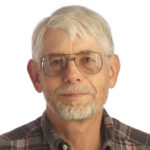Linda and Dr. Joe Markee have learned a lot about the damage an earthquake can cause.
The Vancouver couple just spent two months in Haiti as medical volunteers. They saw how falling bricks and collapsing concrete can crush flesh and shatter bones, but that was no surprise to the Markees.
What they didn’t know was how something that sounds like an earthquake can create a panic that produces more injuries.
Yes, an earthquake has a distinctive sound, the Markees were assured by survivors.
“There were stories about how you could hear the ground roar,” said Joe, a retired obstetrician-gynecologist. “It’s the earth moving.”
“The noise was described as a loud truck coming down the road,” said Linda, a nurse.
That sound echoed in the minds of everyone who heard it on Jan. 12, she said. Like students in a school.
“A door slammed shut and three kids had broken limbs in the panic to get out,” Linda said.
The Markees were caught in that same flight response when an aftershock rattled the hospital where they were staying in Port-au-Prince.
“It was eight days after the quake, 6 a.m., and I was sound asleep,” Linda said. “I woke up to people screaming ‘Earthquake!’ I stumbled down the hallway. There was a bottleneck at the stairs.”
Once she got outside, “All the patients were out of the hospital — even the ones we’d operated on that night,” Linda said.
The Markees are no strangers to Haiti. They have been frequent volunteers with Medical Teams International, and were among the first people the Portland-based relief agency dispatched to the Haitian capital after the quake.
They also have their own nonprofit organization — Haiti Foundation of Hope — that supports a school and clinic in the village of Terra Blanche.
The Markees split time between those two roles, spending their first three weeks with Medical Teams International.
o Donate to the Haiti Foundation of Hope at http://www.haitifoundationofhope.org or P.O. Box 61941, Vancouver, WA 98666
“We were in the midst of a horrible orthopedic situation,” Joe said, referring to people whose limbs had been crushed by falling buildings.
“There was so much suffering. I talked with the head of World Relief, and he said it was the worst disaster he’d ever seen. To have a whole capital destroyed; it’s the heart of Haiti,” Joe said.
The ruined buildings are just one measurement of Haiti’s reconstruction challenge. Haiti suffered a much more significant loss, Linda said — one that you can’t see. It’s the people who were in many of those buildings when the earthquake hit.
“Professionals were working in their offices when their buildings collapsed,” she said. “And a lot of students were in class when their schools collapsed.”
A recent Washington Post story noted that “The nursing school at the University Hospital collapsed during exams and killed essentially an entire first-year class of nursing students.”
Joe said he worked in triage — evaluating patients — and did a lot of wound care. Once the medical volunteers made progress at the hospital, Joe headed out to some mobile clinics. He had an armed escort, soldiers from the 82nd Airborne.
Linda worked in the pharmacy and handled administrative chores. She hired translators and also wrote a $131,000 check to buy three vehicles for Medical Teams International. It was actually the second time the dealer sold those vehicles, she said. The original purchasers never had a chance to drive them off the lot; they were killed in the quake.
After three weeks with Medical Teams International, the Markees spent more than five weeks at their compound in Terre Blanche, an impoverished village in the north. Its name — French for “White Earth” — indicates the lack of resources. That white “dirt” is calcium carbonate, and the landscape is pretty much a desert, Joe Markee said.
That doesn’t mean the village escaped the post-quake turmoil.
“The government moved people into the country, so outlying clinics were overwhelmed,” Joe said. “The Terre Blanche clinic treated people from all over. There were four or five additional people in each household in Terre Blanche.”
Given its desolate setting, “Terre Blanche is not where anyone would choose to live,” Linda added.
One survival story really resonated with the Markees during their two months in Haiti. A woman told of fleeing from her home in Leogane when the quake hit, while her husband was trapped under the wreckage of the collapsed house. The man saw a slit of daylight through the rubble and spent four hours crawling through the debris maze.
During an earlier mission to Haiti in 1998 and 1999, the Markees lived in that house.
Tom Vogt: 360-735-4558 or tom.vogt@columbian.com.




